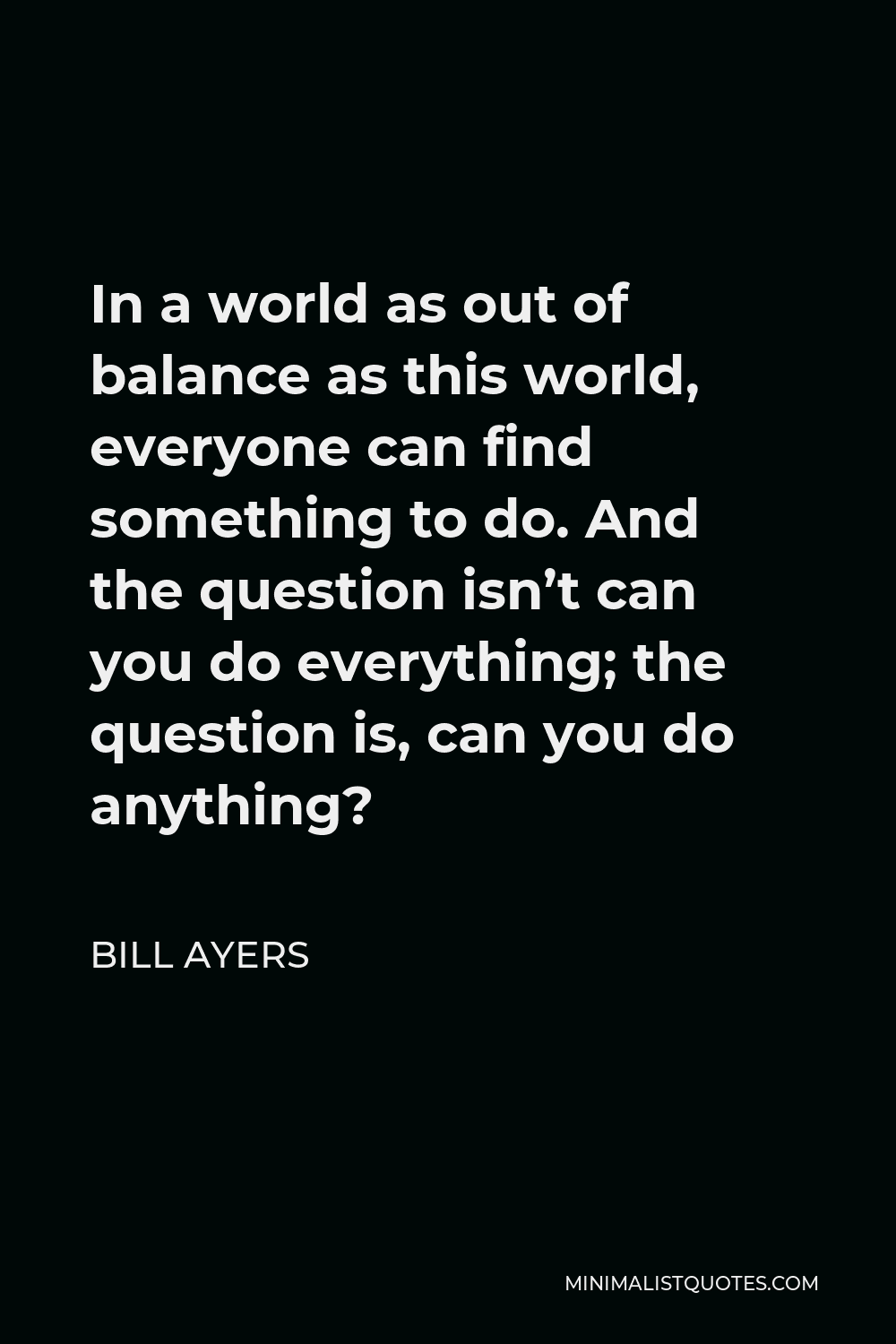When I was young, communism, which had a certain allure to me, was clearly a failed experiment in the Soviet Union and in China. And yet, anti-communism was as bad.
BILL AYERSIn a world as out of balance as this world, everyone can find something to do. And the question isn’t can you do everything; the question is, can you do anything?
More Bill Ayers Quotes
-





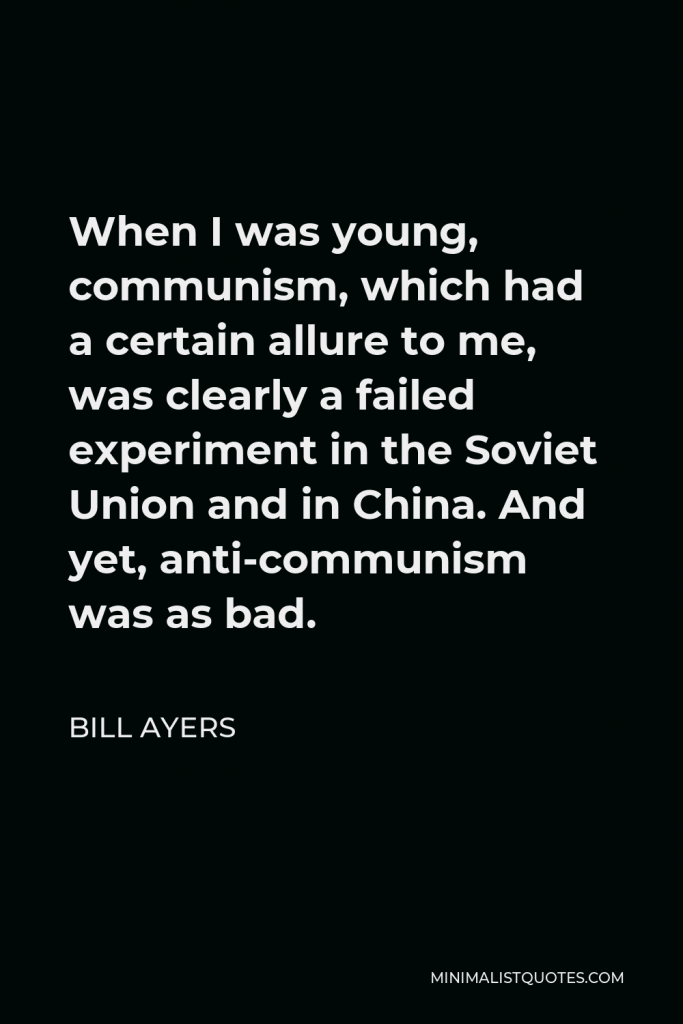

-





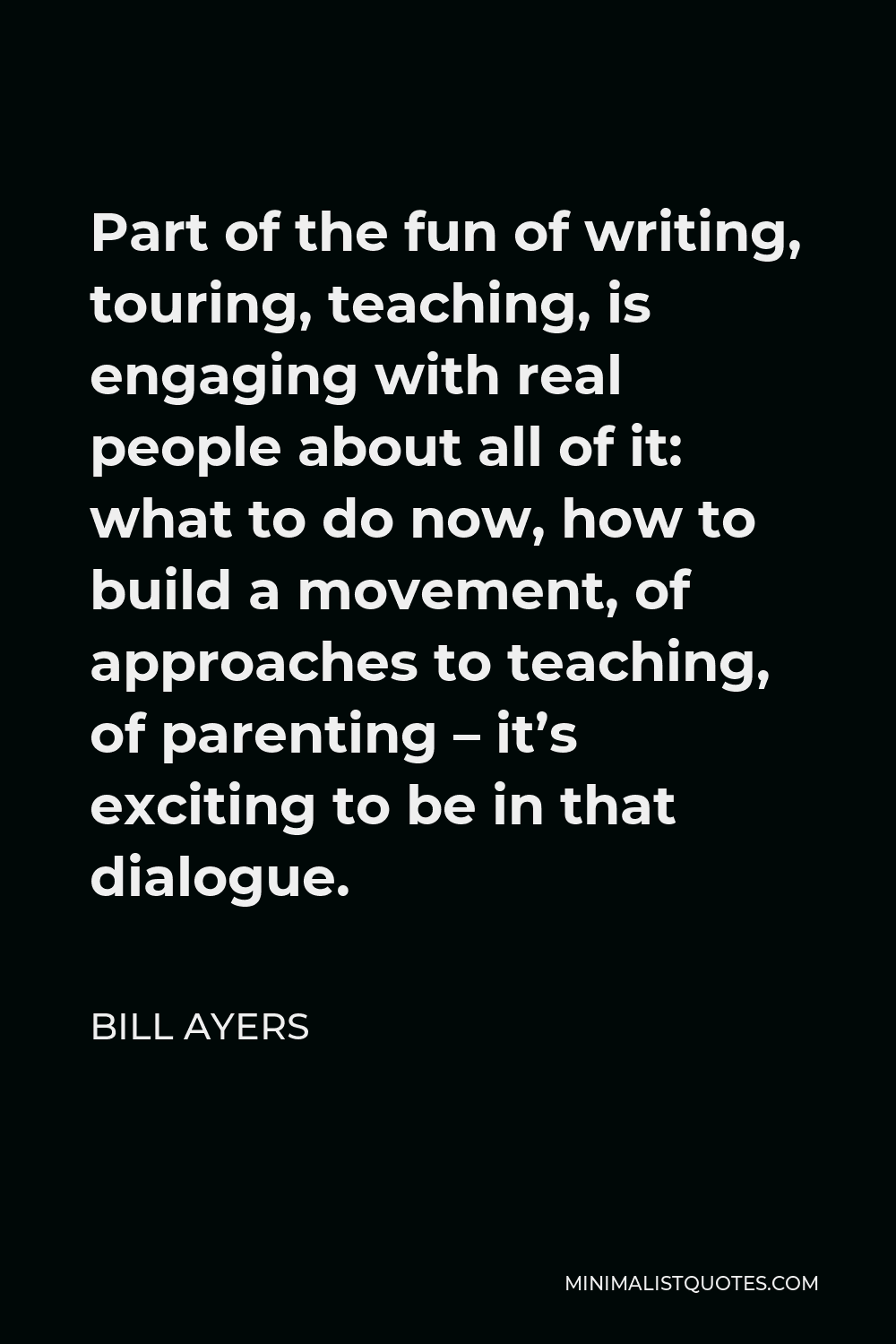
Part of the fun of writing, touring, teaching, is engaging with real people about all of it: what to do now, how to build a movement, of approaches to teaching, of parenting – it’s exciting to be in that dialogue.
BILL AYERS -





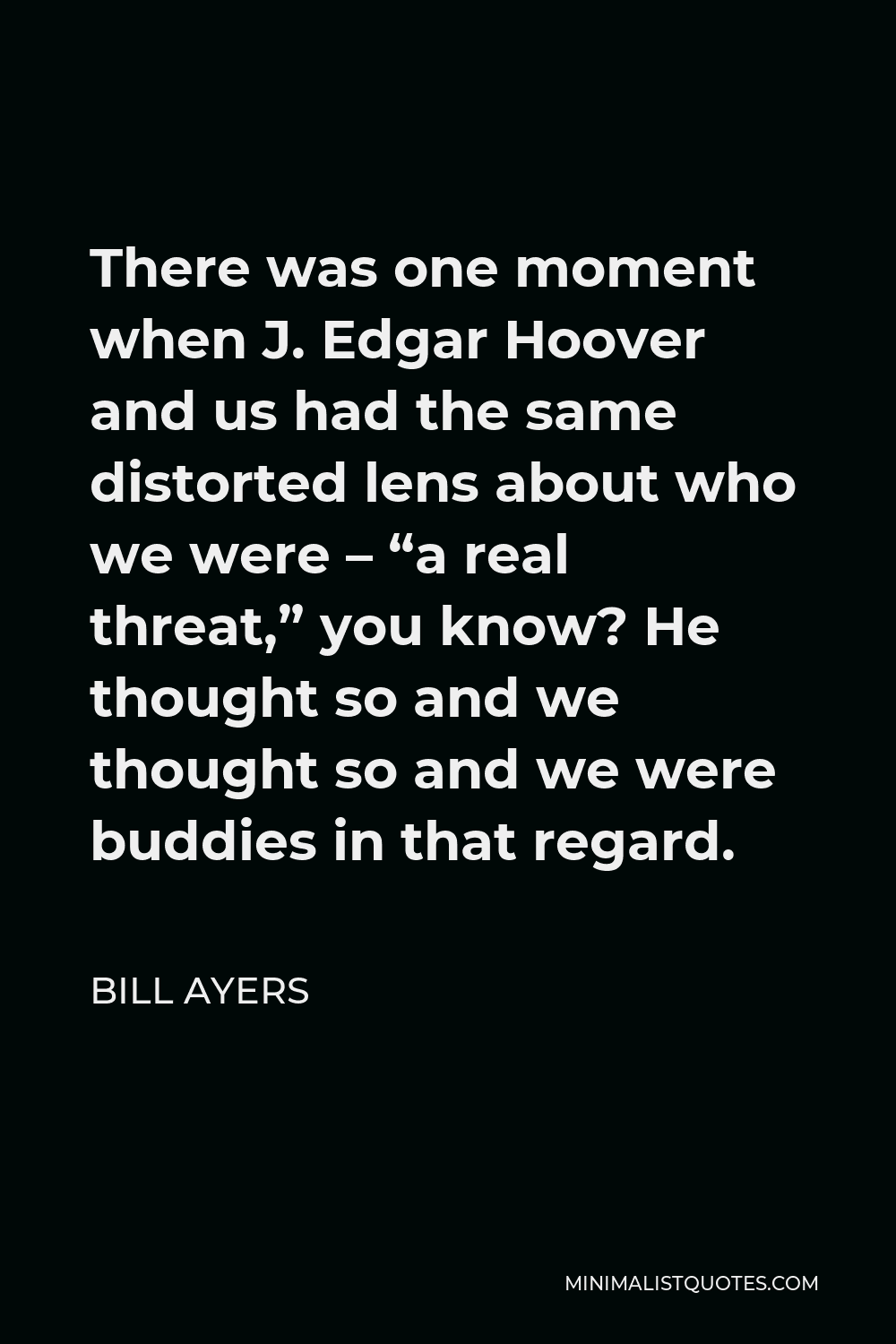
There was one moment when J. Edgar Hoover and us had the same distorted lens about who we were – “a real threat,” you know? He thought so and we thought so and we were buddies in that regard.
BILL AYERS -





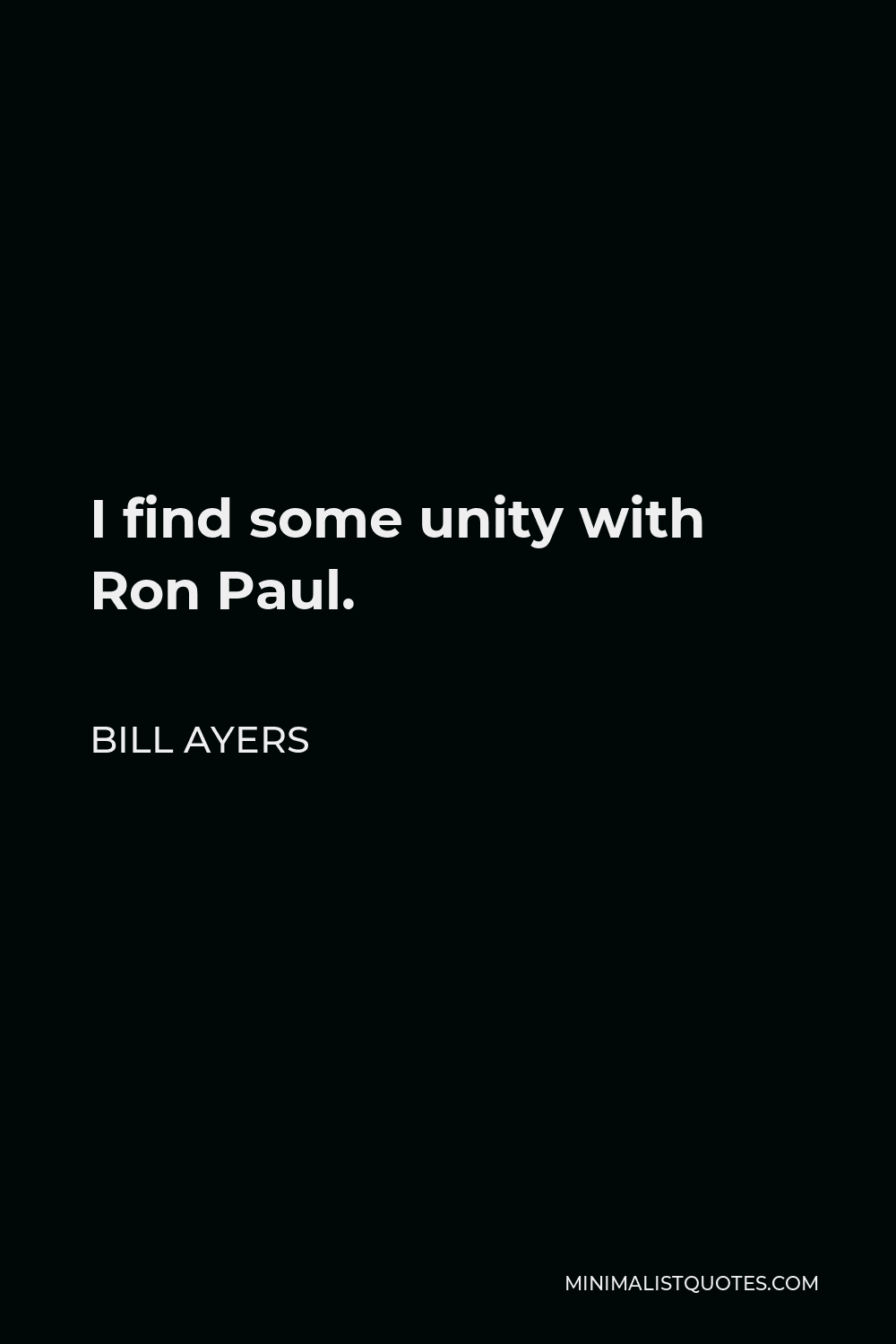
I find some unity with Ron Paul.
BILL AYERS -





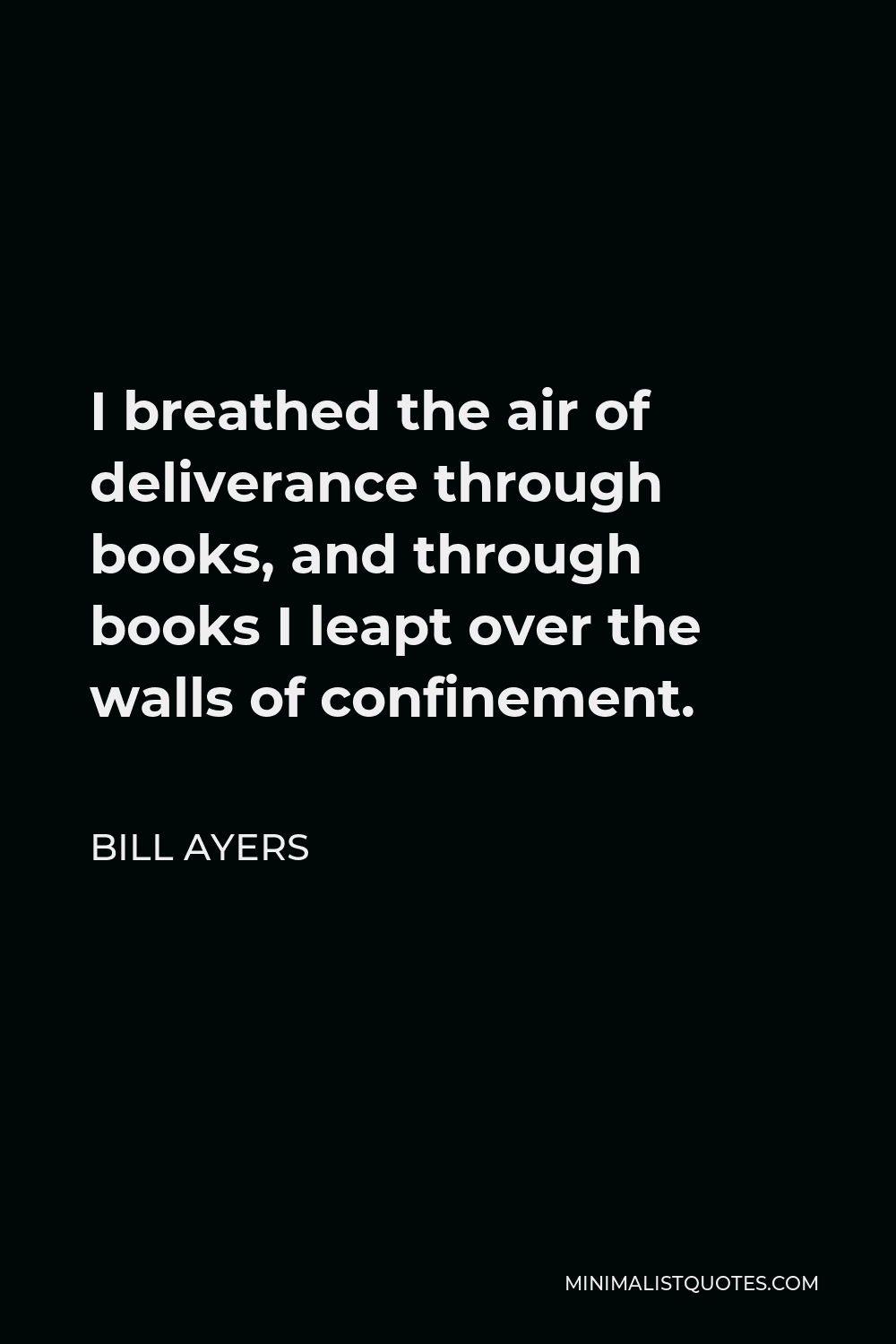
I breathed the air of deliverance through books, and through books I leapt over the walls of confinement.
BILL AYERS -





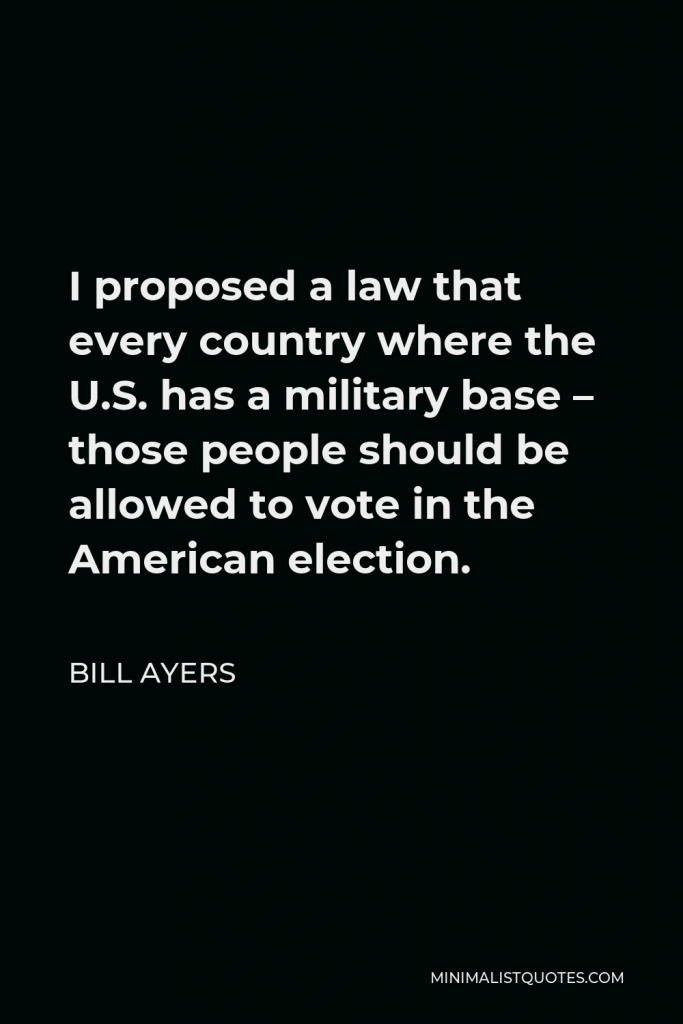

I proposed a law that every country where the U.S. has a military base – those people should be allowed to vote in the American election.
BILL AYERS -





![Bill Ayers Quote - I do think [Barack Obama’s] strategy for re-election is so misguided. He’s counting on the Republicans to self-destruct, and they might, you know, but they might not. So he might be a one-term president.](https://minimalistquotes.com/wp-content/uploads/2023/02/i-do-think-barack-obamas-strategy-for-re-election--683x1024.jpg)

I do think [Barack Obama’s] strategy for re-election is so misguided. He’s counting on the Republicans to self-destruct, and they might, you know, but they might not. So he might be a one-term president.
BILL AYERS -





![Bill Ayers Quote - [Students for a Democratic Society] was on many campuses and it was a powerful organization. It was founded by Tom Hayden, who passed away very recently.](https://minimalistquotes.com/images/students-for-a-democratic-society-was-on-many-camp.jpg)
[Students for a Democratic Society] was on many campuses and it was a powerful organization. It was founded by Tom Hayden, who passed away very recently.
BILL AYERS -





![Bill Ayers Quote - It wasn’t [Barack] Obama per se; it was the feeling on the ground; it was seeing an old black woman in a wheelchair being wheeled by her son waving a big American flag, and then seeing a guy with his baby in his arms saying,](https://minimalistquotes.com/images/it-wasnt-barack-obama-per-se-it-was-the-feeling-on.jpg)
It wasn’t [Barack] Obama per se; it was the feeling on the ground; it was seeing an old black woman in a wheelchair being wheeled by her son waving a big American flag, and then seeing a guy with his baby in his arms saying,
BILL AYERS -





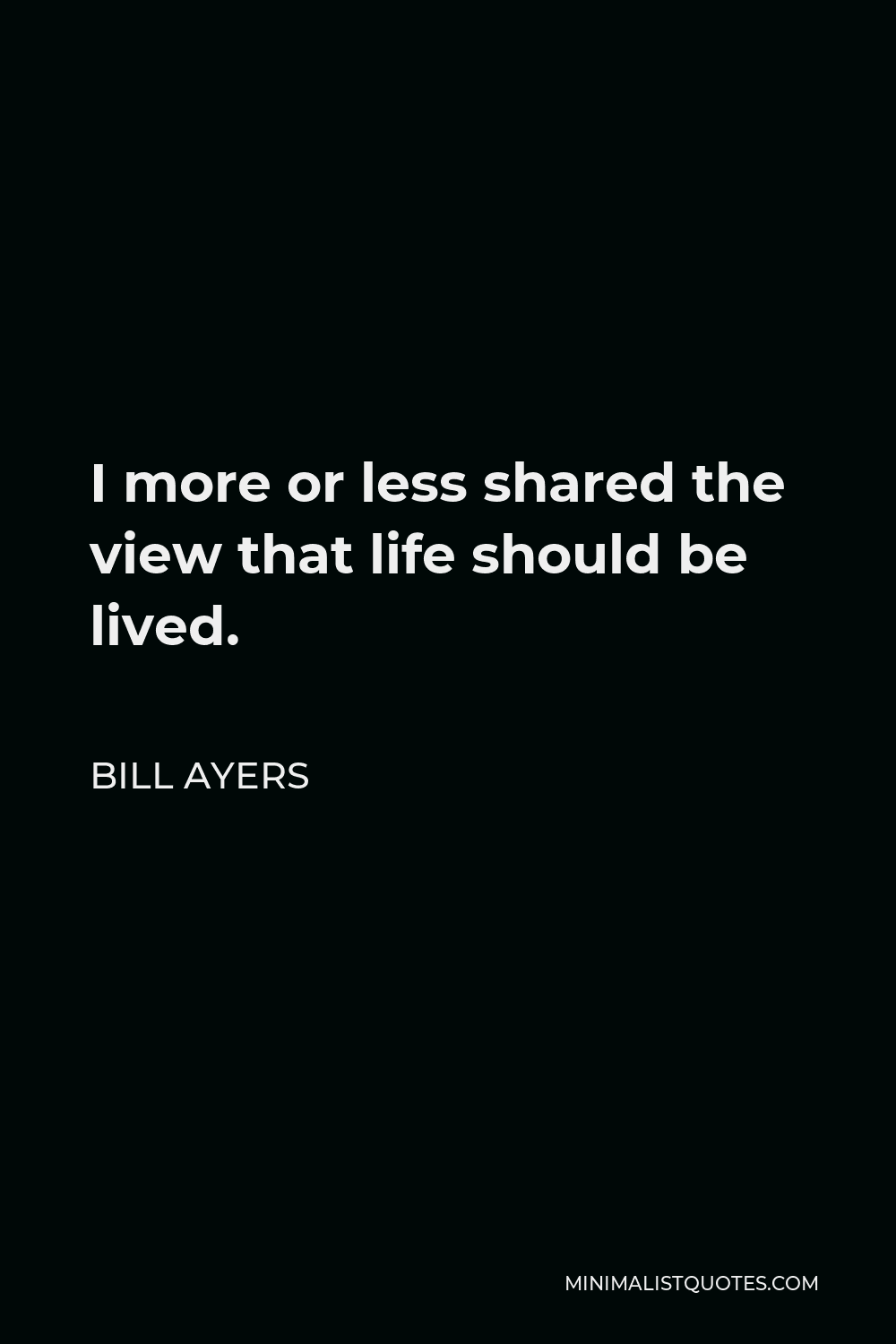
I more or less shared the view that life should be lived.
BILL AYERS -





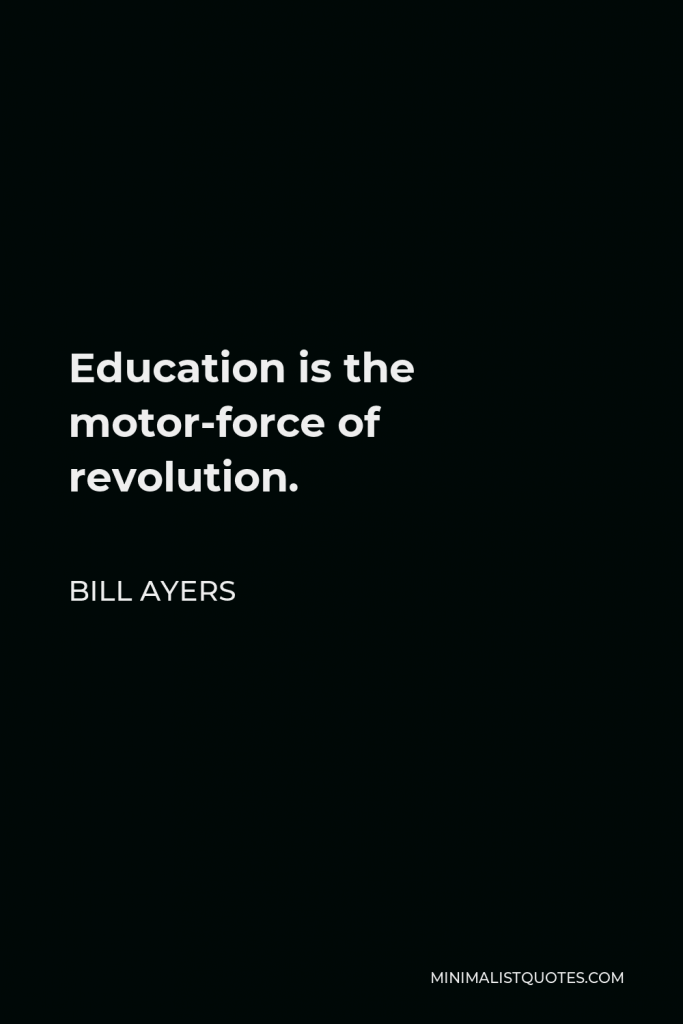

Education is the motor-force of revolution.
BILL AYERS -





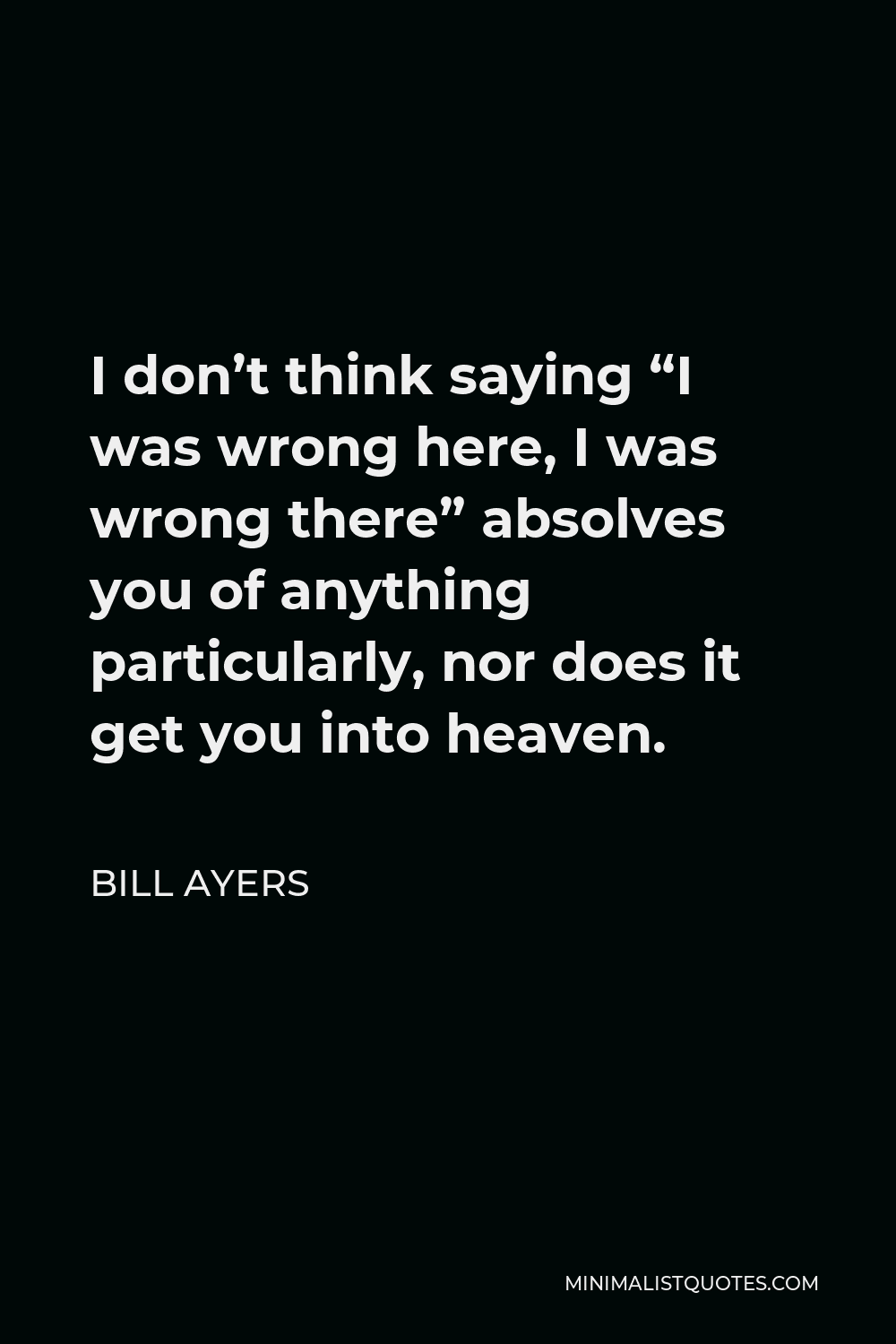
I don’t think saying “I was wrong here, I was wrong there” absolves you of anything particularly, nor does it get you into heaven.
BILL AYERS -





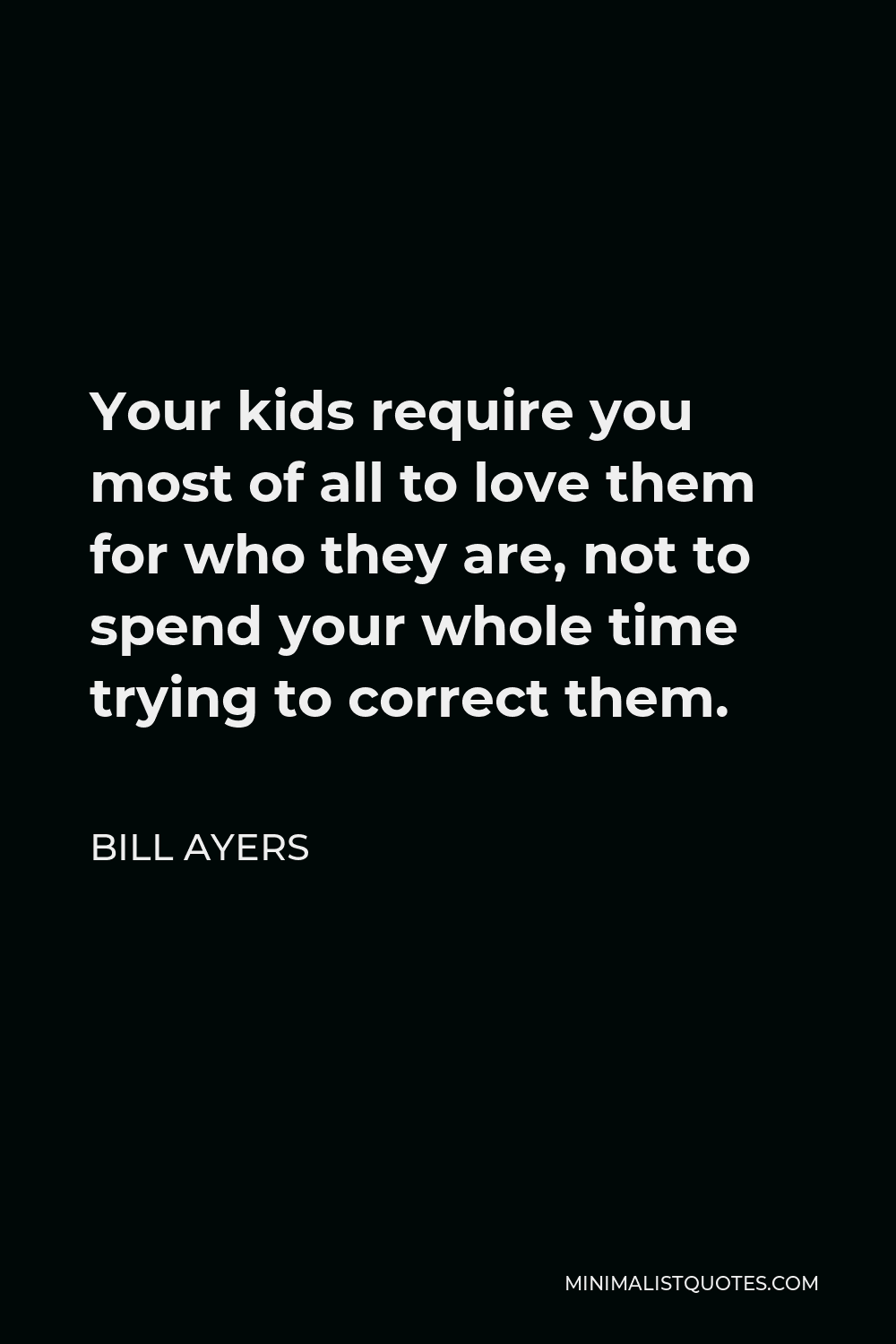
Your kids require you most of all to love them for who they are, not to spend your whole time trying to correct them.
BILL AYERS -






So I had the great advantage of being able to play up to the older kids and play down to the younger kids and I think that’s part of what propelled me to become a teacher at some point in my life. But it was a comfortable childhood. It was a privileged childhood.
BILL AYERS -





![Bill Ayers Quote - Certainly my parents were Dr. [Benjamin] Spock-driven parents. So they were tolerant.](https://minimalistquotes.com/images/certainly-my-parents-were-dr-benjamin-spock-driven.jpg)
Certainly my parents were Dr. [Benjamin] Spock-driven parents. So they were tolerant.
BILL AYERS -





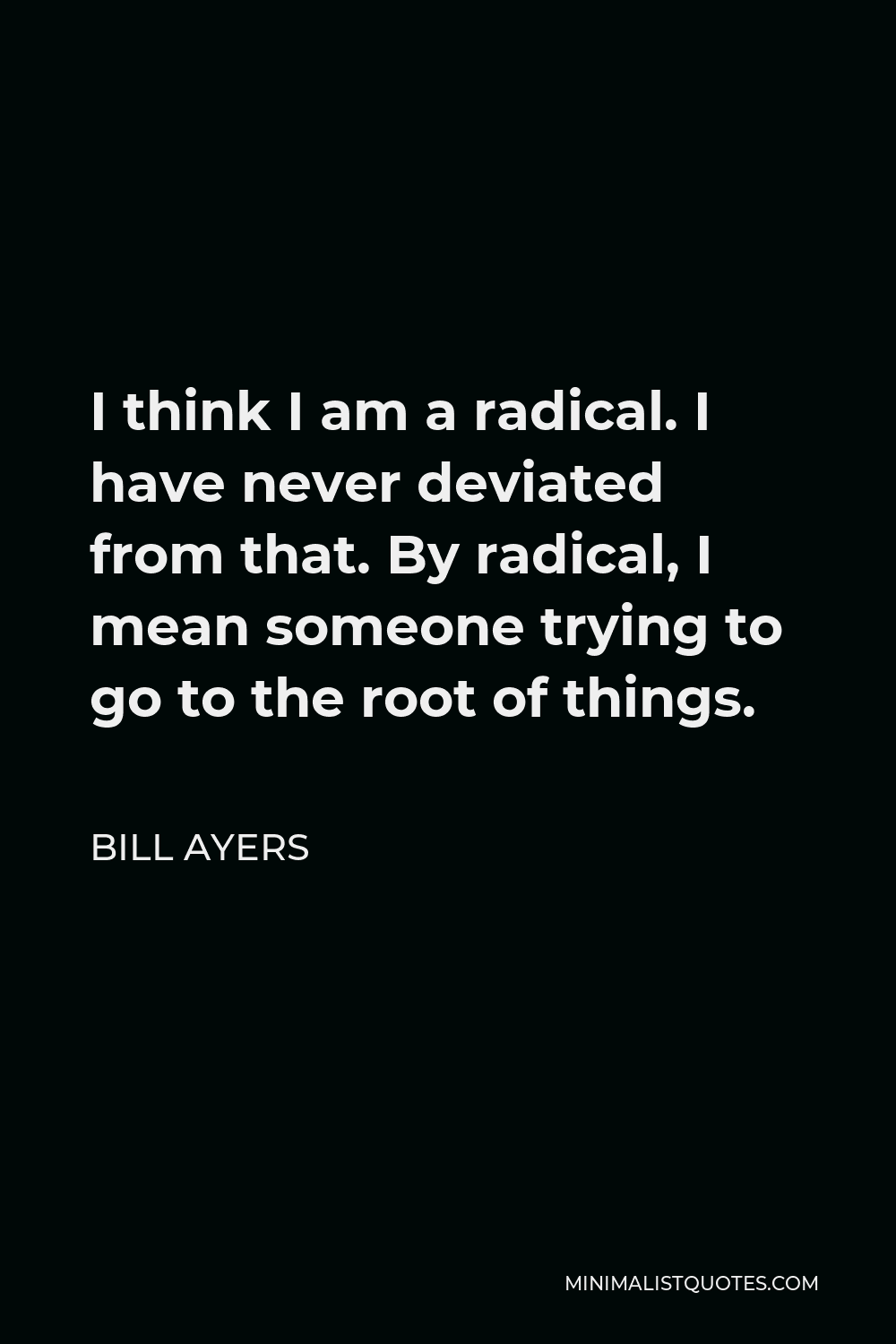
I think I am a radical. I have never deviated from that. By radical, I mean someone trying to go to the root of things.
BILL AYERS
